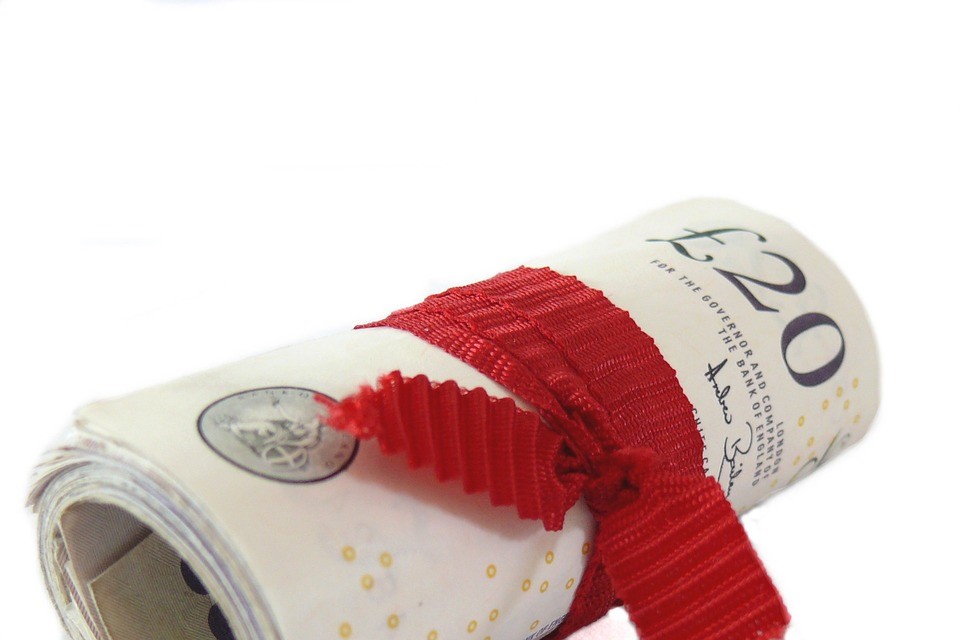
If you want to make a gesture in the form of a cash gift, you want to ensure that you are getting the best deal with regards to inheritance tax. There are a number of ways in which you can gift money without incurring inheritance tax. However, this depends on why you gift it, who you gift it to, how much you gift and how long you live after gifting the money. The law in this area can be quite complex, but here are a few tips to help you make the right decision.
How Much Tax Exempt Money Can I Gift Per Year?
You are able to gift an individual a total of £3,000 a year without incurring inheritance tax. This annual exemption can transfer to the next year if it was not used that year. For example, if you did not gift any money in 2016, in 2017 you may gift £6000 inheritance tax free. However, this can only be transferred through for 1 year.
On top of this, you can give small cash gifts up to the value of £250 to as many people as you want, as long as they have not received a gift of your whole £3,000 annual exemption.
Can I Gift Tax Exempt Money Exceeding my Annual Exemption?
It is completely up to you how much money you gift while you are alive; however, if you want to make this gift tax exempt it is important that you plan when to gift the money.
If you live more than 7 years from when you make the gift, your recipient won’t have to pay inheritance tax when you die. However, if you don’t live for more than 7 years, they will be liable for inheritance tax as your gift will then count as part of your estate. The amount of inheritance tax owed will depend on when the gift was given - the older the gift, the lower the amount of tax.
For example, you may gift your child a deposit for a house which may be over your annual exemption of £3000 and they will not be liable for inheritance tax if you live longer than 7 years from the date the money was gifted.
There are also certain circumstances where you can gift above your annual exemption without incurring inheritance tax:
1. Wedding gifts: Tax free money can be given in the form of a wedding gift in certain circumstances, for example, if it is given to a child and is worth £5,000 or less; given to a grandchild or great-grandchild and is worth £2,500 or less; or given to another relative or friend and is worth £1,000 or less.
2. Money to help with living costs: If you are helping an ex-spouse pay living costs, an elderly dependent or a child under 18 or in full-time education, this money will be exempt from inheritance tax, providing you live for more than 7 years after gifting it.
3. Money from a surplus income: If you earn enough income to maintain your normal standard of living, you can make gift payments from your remaining income. For example, paying regular amounts into a child’s savings account. This money will be exempt from inheritance tax, providing you live for more than 7 years after gifting it.
How Can I Protect Myself for Inheritance Tax?
It is very important that you keep precise records of when you gift money and to whom. Otherwise, Inheritance Tax could be due on cash gifts when you die. If you are gifting large amounts of money, for example a deposit for a child’s home, ensure you write and sign a dated letter to prove when the gift was given and how much was given.
Learn More About Cash Gifts
Here at Howells we can offer expert advice to help you find the ideal solution to your situation. For more information on money gifts or inheritance tax planning, please contact Howells solicitors and speak to one our experts who will to happy to give you further guidance.
Get in touch with your local branch today - we're always happy to help.
Please telephone us on 02920 40 40 20 or you can fill in our online enquiry form below and we will be in contact.

